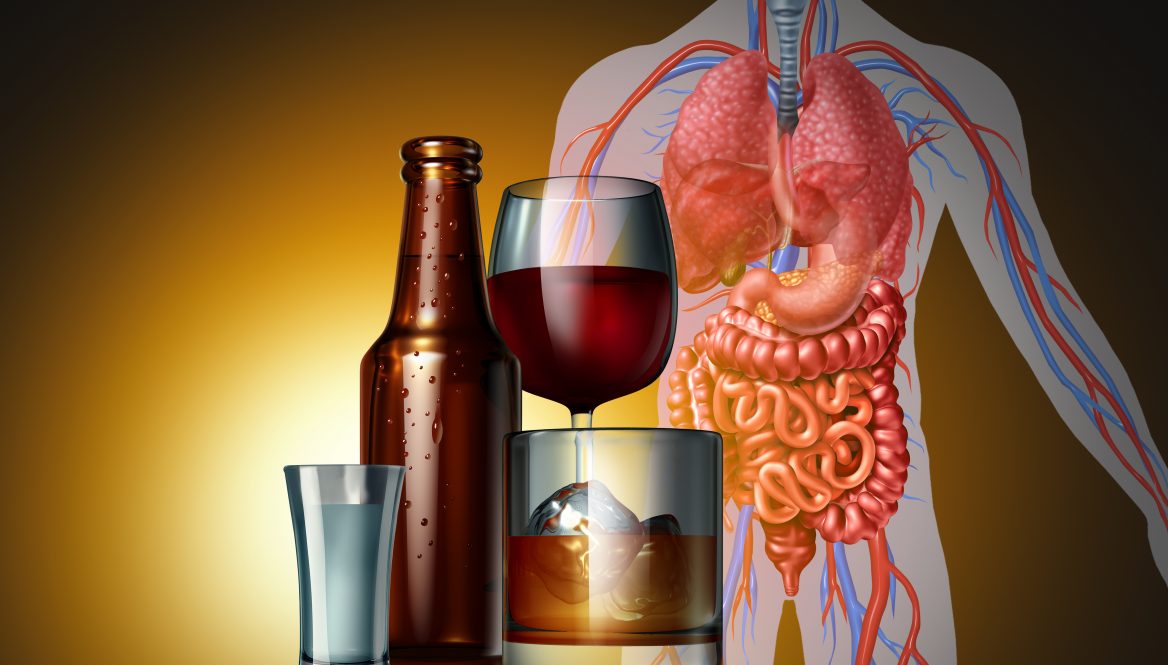A team led by University of Connecticut School of Medicine researchers reports that valeric acid, a substance made by gut bacteria, reduces binge drinking in mice.

Currently, only three FDA-approved drugs are available to treat alcohol use disorder, and they are not particularly effective for most people.
Binge drinking significantly increases the risk of alcohol addiction. In a study published in Microbiome on June 17, a team led by University of Connecticut School of Medicine researchers reports that valeric acid, a substance made by gut bacteria, reduces binge drinking in mice. Their findings open a new avenue in the search for treatments for alcohol abuse.
Binge drinking is a pattern of excessive alcohol consumption in which an individual consumes a large quantity of alcohol in a short period, typically leading to a blood alcohol concentration of 0.08% or higher. According to the National Institute on Alcohol Abuse and Alcoholism, four or five drinks over two hours bring blood alcohol to that level. Studies indicate that one out of three young Europeans and North Americans regularly engages in binge drinking, putting them at increased risk of developing alcohol use disorder and other neuropsychiatric disorders later in life.
Despite the widespread prevalence and adverse consequences of alcohol misuse, effective pharmacological treatments are limited. Currently, only three FDA-approved drugs are available to treat alcohol use disorder, and they are not particularly effective for most people.
UConn School of Medicine microbiome scientist Yanjiao Zhou was intrigued by findings that showed individuals who binge drink often have different patterns of microorganisms in their gut than people who do not binge drink. Their gut microorganisms, referred to as the gut microbiome, also tended to produce a different mix of short-chain fatty acids (SCFAs). SCFAs are produced by the gut microbiome during the fermentation of undigested dietary fibers and proteins. It seemed possible that the mix of SCFAs produced by the gut organisms might be influencing drinking patterns.
To explore the potential connection between SCFAs and binge drinking, Zhou and her colleagues used a four-day "drinking in the dark" mouse model. This model mimics binge drinking in humans. Mice were given different types of SCFAs with their feed for 10 days. Then the mice were allowed to drink alcohol (20% ethanol mixed with water, the mice don't get cocktails!) at night for some time over four nights. Mice fed valeric acid but not other types of SCFAs drank 40% less alcohol and had blood alcohol levels 53% lower than the other mice. These mice also exhibited reduced anxiety-related behaviors.
"The finding that valeric acid reduces drinking is surprising," says Suresh Bokoliya, a postdoc in the Zhou lab. "Valeric acid is low in concentration in the gut compared to other common SCFAs such as butyrate and acetate."
When the team looked further into how valeric acid reduces drinking, they found mice supplemented with valeric acid had increased levels of GABA, a chemical known for its calming effect, in the amygdala, a brain region associated with mood and addictive behaviors. They also found that genes involved in energy production and anti-inflammatory activities were more active, and genes related to depression were less active.
"Multiple mechanisms are likely at play in how valerate reduces drinking," says Zhou. "But the impact of this microbial metabolite on brain epigenetics can be quite powerful in regulating drinking behaviors."
The Zhou lab worked in close collaboration with Jon Covault from the Alcohol Research Center at UConn, Jason Bubier from The Jackson Laboratory, and Jessica Barson at Drexel University. The researchers are now testing this approach in other mouse models that more closely approximate alcohol addiction to see if valeric acid can effectively treat alcohol dependence in humans.
The study was funded by the National Institute on Alcohol Abuse and Alcoholism.






